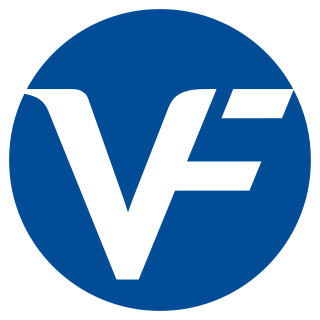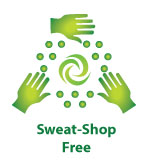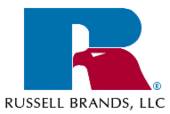
A sweatshop or sweat factory is a crowded workplace with very poor, illegal working conditions. The manual workers are poorly paid, work long hours, and experience poor working conditions. Some illegal working conditions include poor ventilation, little to no breaks, inadequate work space, insufficient lighting, or uncomfortably/dangerously high or low temperatures. The work may be difficult, tiresome, dangerous, climatically challenging, or underpaid. Workers in sweatshops may work long hours with unfair wages, regardless of laws mandating overtime pay or a minimum wage; child labor laws may also be violated. Women make up 85 to 90% of sweatshop workers and may be forced by employers to take birth control and routine pregnancy tests to avoid supporting maternity leave or providing health benefits. The Fair Labor Association's "2006 Annual Public Report" inspected factories for FLA compliance in 18 countries including Bangladesh, El Salvador, Colombia, Guatemala, Malaysia, Thailand, Tunisia, Turkey, China, India, Vietnam, Honduras, Indonesia, Brazil, Mexico, and the US. The U.S. Department of Labor's "2015 Findings on the Worst Forms of Child Labor" found that "18 countries did not meet the International Labour Organization's recommendation for an adequate number of inspectors."

Fruit of the Loom is an American company that manufactures clothing, particularly casual wear and underwear. The company's world headquarters is located in Bowling Green, Kentucky. Since 2002, it has been a wholly owned subsidiary of Berkshire Hathaway.

Asics is a Japanese multinational corporation that produces sportswear. The name is an acronym for the Latin phrase anima sana in corpore sano. Asics is best known for its sneakers, but also produces other footwear such as sandals, as well as clothing and accessories. It is headquartered in Kobe, Hyōgo Prefecture, Japan.
Brooks Sports, Inc., also known as Brooks Running, is an American sports equipment company that designs and markets high-performance men's and women's sneakers, clothing, and accessories. Headquartered in Seattle, Washington, Brooks products are available in 60 countries worldwide. It is a subsidiary of Berkshire Hathaway.
Charles Patrick Kernaghan was the executive director of the Institute for Global Labour and Human Rights, formerly known as the National Labor Committee in Support of Human and Worker Rights, currently headquartered in Pittsburgh. He is known for speaking out against sweatshops, corporate greed and the living and working conditions of impoverished workers around the world.

Guess Inc. is an American clothing company, notable for its black-and-white advertisements. Guess licenses its brand on other fashion accessories, such as watches, jewelry, perfumes, bags and shoes.

VF Corporation is an American global apparel and footwear company founded in 1899 by John Barbey and headquartered in Denver, Colorado. The company's 13 brands are organized into three categories: Outdoor, Active and Work. In 2015, the company controlled 55% of the U.S. backpack market with the JanSport, Eastpak, Timberland, and The North Face brands.

Champion is a brand of clothing, specializing in sportswear owned and marketed by American apparel company Hanesbrands, which was spun off by the Sara Lee Corporation in 2006. The company was originally based in Rochester, New York, prior to its acquisition by Sara Lee in 1989. Champion is Hanes' second-largest brand.
The Institute for Global Labour and Human Rights, formerly known as the National Labor Committee, is a non-profit, non-governmental organization (NGO) that investigates human and labor rights abuses committed by large multinational corporations producing goods in the developing world. The Institute was headquartered in Pittsburgh, Pennsylvania, with offices in Bangladesh and Central America. Charles Kernaghan served as the Executive Director. The Institute published investigations with the goal of influencing public opinion and corporate policy. It is widely considered to be the organization that began the late-20th-century anti-sweatshop movement in America.

Bike Athletic Company is an American sportswear company with headquarters in Atlanta, Georgia. They invented the jockstrap in 1874 for bicyclists in Boston. The firm sold over 350 million jockstraps.
The Clean Clothes Campaign (CCC) is the garment industry's largest alliance of labour unions and non-governmental organizations. The civil society campaign focuses on the improvement of working conditions in the garment and sportswear industries. Formed in the Netherlands in 1989, the CCC has campaigns in 15 European countries: Austria, Belgium, Denmark, Finland, France, Germany, Italy, Ireland, Netherlands, Norway, Poland, Spain, Sweden, Switzerland and the United Kingdom. The CCC works with a partner network of more than 250 organizations around the world.

Nike, Inc. is an American athletic footwear and apparel corporation headquartered near Beaverton, Oregon, United States. It is the world's largest supplier of athletic shoes and apparel and a major manufacturer of sports equipment, with revenue in excess of US$46 billion in its fiscal year 2022.

Starter, Inc. is an American clothing manufacturer, focusing on major league sports teams. Starter's current licenses include MLB, NBA, NFL, and NHL teams. Non-sports agreements include a partnership with Coca-Cola.

Sweatshop-free or sweat free is a term first used by American Apparel, a famous American clothing brand, which means coercion-free, fair-compensation for the garment workers who manufacture their products. The aim of sweatshop-free wish to ensure that all employees are treated fairly and products are made in good working conditions. Sweatshop-free standards include the right to collective bargaining, non-poverty wages, safe workplaces, back wages, and non-harassment. It has been heavily featured in American Apparel’s advertisements and become a common term in the garment industry.
Nike, Inc. has been accused of using sweatshops and worker abuse to produce footwear and apparel in East Asia. After rising prices and the increasing cost of labor in Korean and Taiwanese factories, Nike began contracting in countries elsewhere in Asia, which includes parts of India, Pakistan, and Indonesia. It sub-contracted factories without reviewing the conditions, based on the lowest bid. Nike's usage of sweatshops originates to the 1970's. However, it wasn't until 1991, when a report by Jeff Ballinger was published detailing their insufficient payment of workers and the poor conditions in their Indonesian factories, that these sweatshops came under the media and human rights scrutiny that continues to today.

Russell Athletic is an American clothing manufacturer based in Bowling Green, Kentucky. Currently a subsidiary of global company Fruit of the Loom, Russell Athletic was the main brand of Russell Brands, LLC. until its acquisition in 2006.
Alta Gracia Apparel is a living wage apparel company manufacturing that sells licensed collegiate and professional sports apparel to university bookstores and online retailers. Their factory, located in Villa Altagracia, Dominican Republic is the first and only verified Living Wage company of its kind.

Clothing industry or garment industry summarizes the types of trade and industry along the production and value chain of clothing and garments, starting with the textile industry, embellishment using embroidery, via the fashion industry to apparel retailers up to trade with second-hand clothes and textile recycling. The producing sectors build upon a wealth of clothing technology some of which, like the loom, the cotton gin, and the sewing machine heralded industrialization not only of the previous textile manufacturing practices. Clothing industries are also known as allied industries, fashion industries, garment industries, or soft goods industries.

United Students Against Sweatshops (USAS) is a student organization founded in 1998 with chapters at over 250 colleges and universities in the United States and Canada. In April 2000, USAS founded the Worker Rights Consortium (WRC), an independent monitoring organization that investigates labor conditions in factories that produce collegiate apparel all over the world. The WRC exacts an annual membership fee from participating universities, which is used to fund its monitoring work.

KYE Systems Group, or KYE, an abbreviation of Kung Ying Enterprises, is a Taiwanese computer peripheral manufacturer that designs and manufactures and markets human interface devices such as mice under their own brand, Genius. The company also manufactures on an OEM basis for companies such as HP and Microsoft. The company was founded in 1983 and has opened offices internationally.















